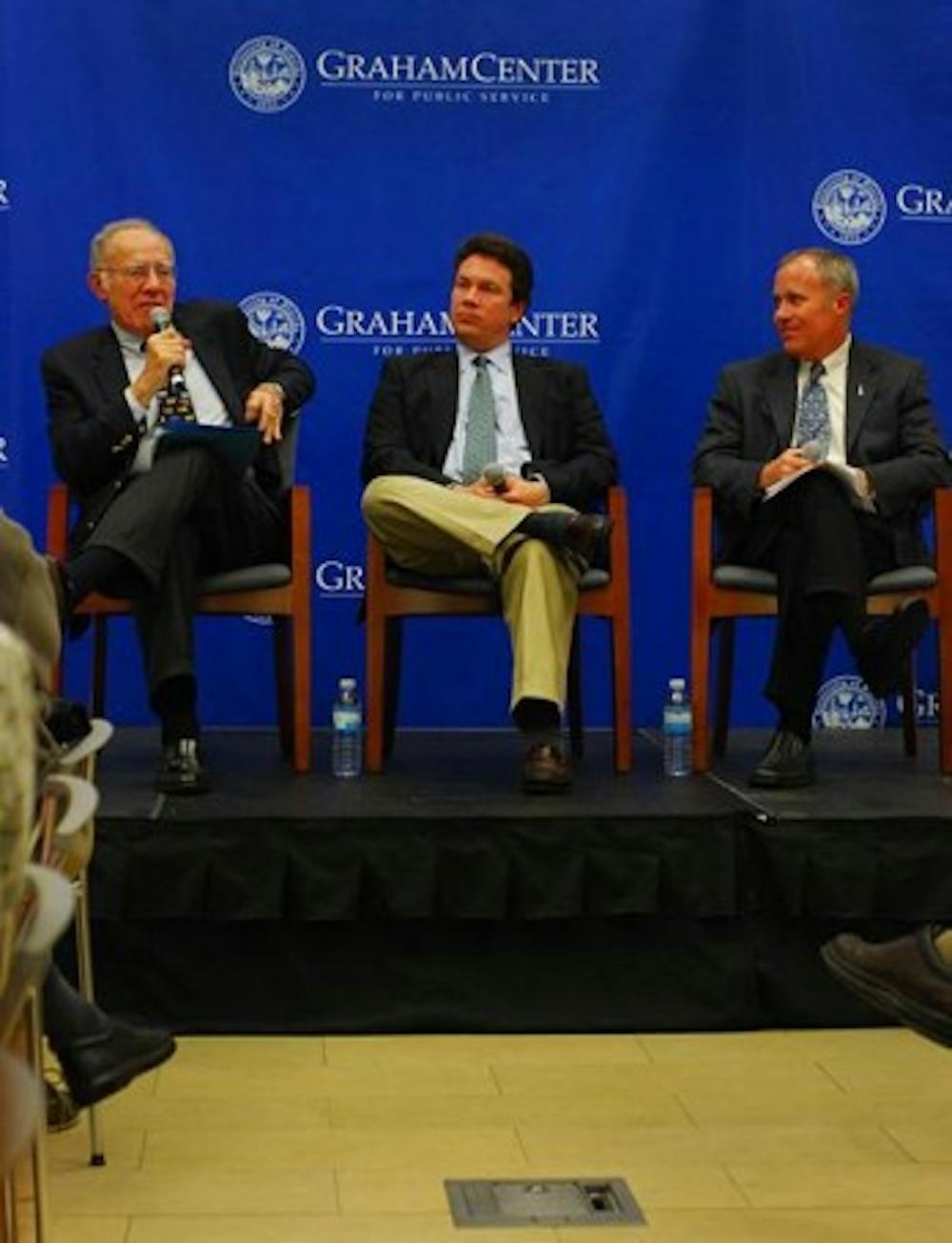Two editors with about 65 years of combined journalism experience took the stage at Pugh Hall Wednesday night to describe the media's influence on President Barack Obama's campaign and the Internet's impact on print journalism.
Bill Adair, Washington Bureau Chief of the St. Petersburg Times, and Al Eisele, editor at large of Washington D.C. congressional newspaper, The Hill, spoke to a crowd of about 100 people and answered questions from audience members and UF spokesman Steve Orlando.
Adair said covering Obama's campaign was not different from covering any other election.
The campaign was unusual because press operations included new techniques, such as Obama's use of Facebook to rally support, Adair said.
Eisele compared Obama's use of YouTube to Franklin D. Roosevelt's fireside chats.
"Obama is the first Internet president," he said.
Eisele said the media's coverage of the campaign was mostly objective considering the unique nature of Obama's candidacy.
He said people underestimate what an incredible thing it was to have a black president elected, and said Obama's election allowed the world to see the U.S. in a new light. Talk of new beginnings transitioned into a discussion of the end of newspaper journalism. Adair said journalists need to take advantage of the Web and use it as a research and presentation tool.
"And, it is time for news organizations to reinvent themselves," Adair said.
Adair, who also founded PolitiFact.com, a Web site that rates the truthfulness of political officials' claims on a scale ranging from "true" to "pants on fire."
News organizations need to help people figure out what information outlets they can trust, he said. Eisele said as newspapers move to the Web, the media loses its watchdog function.
The problem with the Web is that there is no gatekeeper, Eisele said. Both editors also defended the media's role in the financial crisis.
"If you're looking for a scapegoat, you better look somewhere else than the media," Eisele said.
Adair said the financial crisis was an example of the government's role as a watchdog.
UF sophomore Zach Mayo said he was not impressed by the speakers' mentality that nothing was the press' fault.
But he said he liked how the speakers said the newspaper industry needed to move forward in its use of the Internet.
The two speakers also discussed the creation of citizen-journalists, who use the Internet to blog about newsy happenings.
Adair said the media needs to trust users to help create its product. But this is hard for journalists who fear losing their jobs to citizens, he said. Adair also questioned the definition of blogger.
"It's a meaningless word," he said.
Although he does not discount the importance of bloggers, he said a new term should be created to separate journalist-bloggers from citizen-bloggers.
Eisele said "blogger" was not the only word in need of revamping, and he considered the new meaning journalism will take on because of the impact of new technology.
"To take that a little further, I think maybe we need a new word for journalism," Eisele said.






